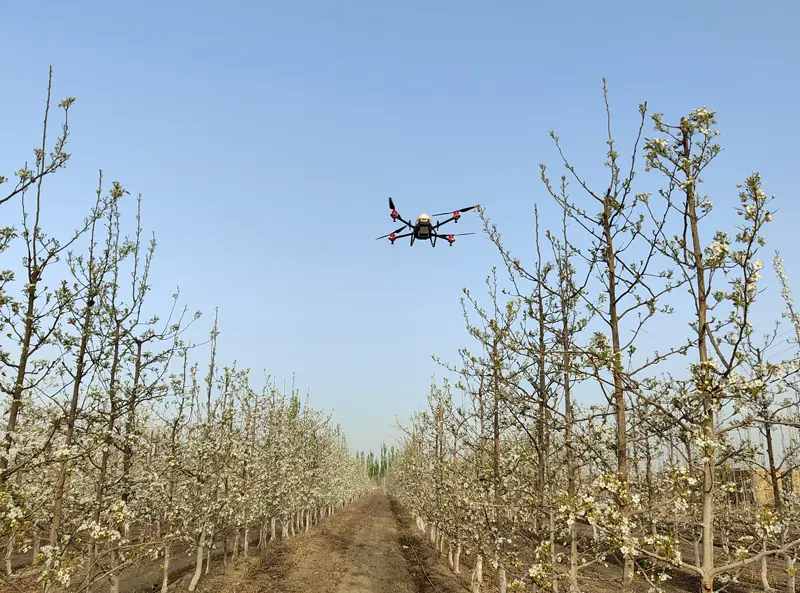Dec . 04, 2024 08:07 Back to list
Optimizing High-Yield Apricot Pollen for Enhanced Fruit Production and Quality
The Importance of High-Quality Apricot Pollen Yields
Apricot trees (Prunus armeniaca) are a staple in many agricultural systems, particularly in regions with temperate climates. These trees not only provide delicious fruits but also play a significant role in the ecosystem through pollination. One of the critical factors contributing to the success of apricot cultivation is the quality and yield of apricot pollen. High-quality apricot pollen yields are essential for successful fertilization, fruit set, and overall crop productivity.
Understanding Apricot Pollen
Pollen is the male gametophyte of seed plants, and it is vital for sexual reproduction in flowering plants. In apricots, pollen not only facilitates fertilization but also affects the quality and quantity of fruit produced. The genetic viability and quantity of pollen grains are influenced by various factors, including environmental conditions, tree health, and agricultural practices. High-quality pollen is typically characterized by larger, well-formed grains that have a higher viability rate, effectively enhancing fertilization success.
Factors Influencing Pollen Quality
Several factors can affect the quality of apricot pollen yields
1. Climate Conditions Apricot trees require specific conditions for optimal flowering and pollen production. Adequate sunlight, appropriate temperatures, and sufficient moisture are critical. Extreme weather conditions, such as late frosts or excessive rainfall, can severely impact flower development and, consequently, pollen yield.
2. Soil Health The health and nutrient composition of the soil play a significant role in the vitality of apricot trees. Nutrient-rich soil fosters robust tree growth, leading to better flowering and healthier pollen. Soil tests and appropriate fertilization strategies can enhance soil quality, thereby improving pollen yields.
3. Varietal Differences Different apricot cultivars exhibit variations in pollen quality and quantity. Some varieties are known for their higher pollen production and viability, which can affect cross-pollination rates and fruit set. Selecting the right cultivar for a particular environment is essential for maximizing pollen yields.
4. Harvesting and Storage Practices The methods used for collecting and storing pollen can impact its viability. Pollen should be collected during optimal flowering times and stored in cool, dry conditions to maintain viability. Poor handling can lead to diminished pollen quality, reducing success rates in fertilization.
high quality apricot pollen yields

The Role of Pollinators
While apricot trees can benefit from self-pollination, cross-pollination by bees and other insects significantly enhances fruit set and quality. Pollinators are attracted to flowers by the presence of high-quality pollen, which serves as their food source. Ensuring a healthy pollinator population is crucial for maximizing apricot yields. Farmers can support these populations through the preservation of natural habitats, reduced pesticide use, and the incorporation of diverse flowering plants in the orchard environment.
Strategies for Improving Pollen Yields
To achieve high-quality apricot pollen yields, farmers can adopt various strategies
- Enhance Tree Health Regular monitoring and maintenance of tree health through pruning, pest management, and disease control can improve flowering and pollen production.
- Optimizing Pollination Planting a variety of apricot trees that bloom at different times can help facilitate cross-pollination, increasing overall yields. Additionally, introducing other pollinator-friendly plants can attract more pollinators to the orchard.
- Utilizing Technology Advances in agricultural technology, such as precision agriculture tools and monitoring systems, can help farmers assess and manage the health of their orchards more effectively.
Conclusion
In conclusion, high-quality apricot pollen yields are fundamental to successful apricot cultivation. By understanding the factors that influence pollen quality and adopting effective strategies to enhance it, farmers can improve their apricot production. With the growing demand for apricots in the global market, focusing on pollen yields not only benefits individual farmers but also contributes to sustainable agricultural practices and biodiversity in our ecosystems. Investing in high-quality pollen management is thus not just an agricultural necessity; it is integral to ensuring a fruitful future for apricot farming.
-
Eco Fruit Paper Bags for Peak Freshness | Durability Focused
NewsJul.31,2025
-
Pollen Peach Tree for Pure Pollination and High-Quality Peach Pollen
NewsJul.30,2025
-
Premium Cherry Pollen for Pure Pollination & Different Types
NewsJul.30,2025
-
Artificial Pollination Solutions for Various Plant Pollen Types
NewsJul.29,2025
-
Artificial Pollination Solutions for All Plant Pollen Types
NewsJul.29,2025
-
Premium Plant Pollen for Pure Pollination & Pollen Block Solutions
NewsJul.29,2025